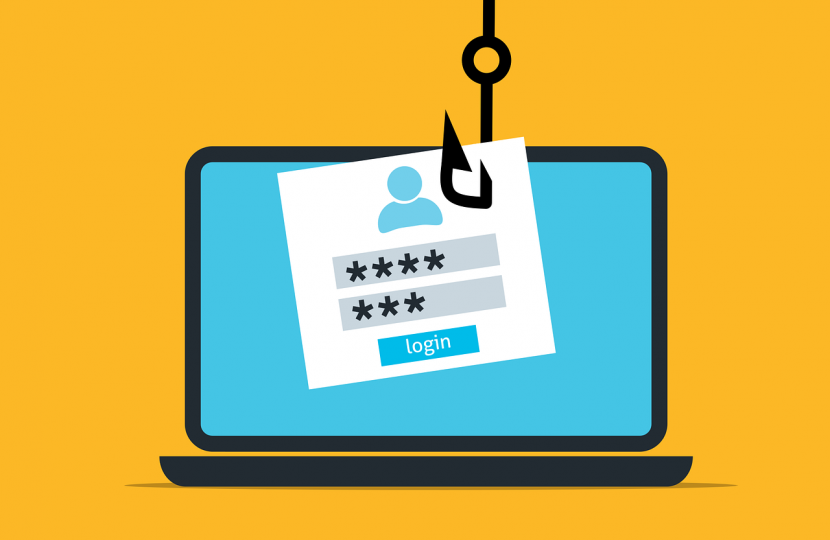
As we find ourselves midway through January, many of us will be having varying degrees of success with sticking to our New Year’s resolutions, be these moving more, learning a new language or giving healthy eating a go.
Of course, one of the most important resolutions that we should all hold is to stay savvy about scams throughout 2022 and beyond.
These are, unfortunately, on the rise. Action Fraud received 413,553 reports of fraud in the UK between April 2020 and March 2021; an increase of 33% from the previous year. More than £2.3 billion was lost by victims as a result, although this is likely to just be the tip of the iceberg, as many will have felt too scared or ashamed to report and others will be completely unaware that they have been duped.
Some of the rise in cases of fraud can be directly attributed to scammers capitalising on Covid, with new cons cropping up even now, almost two years into the pandemic.
Scams include texts, emails, or phone calls supposedly from the NHS or your GP, requesting payment for the Covid-19 vaccination or the Covid-19 Pass. Although these can often appear genuine, the NHS will never ask you to pay for the vaccine or Pass, or to provide your bank account or card details.
Our Trading Standards team have also received reports of fraudsters selling face coverings or hand sanitiser online which either never arrives or, worse still, doesn’t comply with safety standards. Whilst internet shopping has been a lifeline for many during the pandemic, care should be taken when making any purchases online.
Beat the cyber crooks by only shopping at reputable retailers and doing your research first; try to make sure that they’re legitimate if you haven’t purchased anything online from them previously. This can be done by using independent review websites such as Trust Pilot: uk.trustpilot.com to search for customer feedback on a retailer before buying anything from them.
Paying for items using a credit card is another great way to help you shop safely, as any individual item costing over £100 and up to £30,000 will be covered by section 75 of the Consumer Credit Act. This means that the credit card company has equal responsibility (or ‘liability’) with the seller if there’s a problem with your purchase or the company you’ve bought it from fails.
It’s also worth remembering that if a deal looks too good to be true, it probably is. Whilst I appreciate that everyone loves a bargain, no discount is ever worth the dangerous consequences of items which haven’t been adequately tested.
We are not immune to this in Suffolk. Since April last year, our Imports Surveillance team, working at the port of Felixstowe, have discovered over 15,000 unsafe and non-compliant e-scooters trying to make their way into the country.
Many of these were refused entry into the UK or destroyed at the border, to ensure the safety of consumers, after a high quantity had no labelling or technical documentation to show they complied with the relevant UK safety standards.
With dodgy electrical items like these, it’s not just money that you risk losing, but your life as they can, in severe cases, cause fire or serious injury.
Only buying genuine products from trusted retailers, rather than third-party selling sites, will really help to protect you and your family. I’d also urge you to reduce the risk of fires in the home further by registering your electrical appliances to enable the manufacturer to contact you in the event of a product safety recall.
Our council is proud to support Register My Appliance Week, which began yesterday, with more information on this available at www.suffolk.gov.uk/news.
You can also keep up to date on all dangerous product recalls, including those for food and toys, by visiting www.suffolk.gov.uk/jointhefight and signing up to receive a free weekly email alert on this and scams, as a Trading Standards Consumer Champion.
Further advice on scams currently being seen in Suffolk is available on Trading Standards’ Facebook page (www.facebook.com/SuffolkTradingStandards) and Twitter account (twitter.com/SuffolkTS) so if you’re not already doing so, give them a follow, as this could prevent you from falling victim to fraudsters.
If you want to stop others from being scammed, sign up to become a Friend Against Scams at: www.friendsagainstscams.org.uk/. This will empower you to spot the signs of scams and take a stand against these. It doesn’t require much of your time and will help to protect not just you and your loved ones, but also the wider community – making it the perfect way to give something back this year.
Although scams may be on the rise, if we all work together, we can stop fraudsters in their tracks and ensure that Suffolk continues to be a safe place that everyone is proud to call home.


